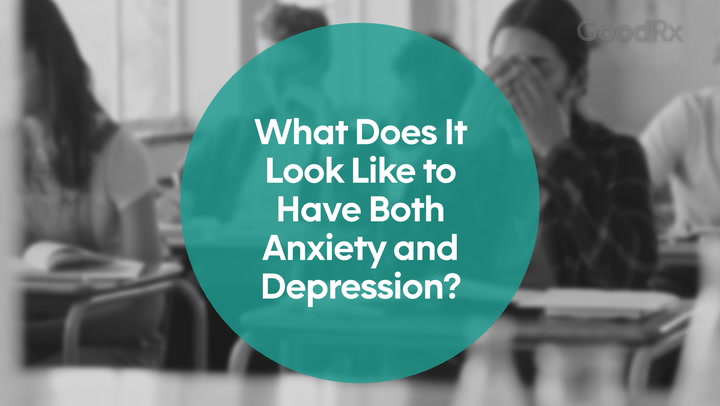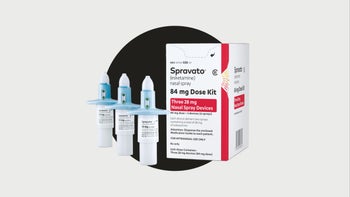
4 Reasons You May Feel Insecure, and How to Build Your Confidence
Key takeaways:
Low self-confidence, or insecurity, involves feeling inadequate or not good enough. Everyone experiences it from time to time, but it usually doesn’t last forever.
Insecurity can stem from a variety of factors. These include: childhood experiences, comparison to others, trauma, uncertainty, and discrimination.
Fortunately, by taking the steps and getting the right support, you can learn to boost your self-esteem and self-confidence.

If you’ve been feeling insecure lately, you’re not alone. Everyone experiences times when they feel like they're not good enough. We may worry about our ability to navigate our future, jobs, or relationships. And we may question whether we have what it takes to cope with whatever challenges lie ahead.
Insecurity can stem from all sorts of experiences and, when it persists, can take a toll on your mental health. But fortunately, there are strategies you can use to boost your self-confidence and harness your inner strength.
What causes insecurity?
Insecurity can be caused by a wide variety of circumstances and life experiences.
Search and compare options
1. Difficulties in childhood
Some experts believe that insecurity is caused by difficult childhood experiences. This idea has roots in attachment theory, which states that our early relationships with primary caregivers impact our adult relationships.
So, for example, experiencing inconsistent parenting as a child might make it harder for you to feel safe and secure in adult relationships. Other childhood difficulties that can contribute to insecurity include:
Relationships with caregivers that don't the meet child's needs
Resource insecurity (like not having housing or adequate food)
Exposure to trauma such as abuse, neglect, community violence, or natural disasters
2. Comparison to others
Comparing yourself to others can also lead to insecurity and hurt your self-esteem. This is especially a concern in our era of rampant social media use. Consuming everyone else’s “highlight reel” may leave you feeling like you don’t measure up to social standards.
And wishing you had someone else’s job, house, relationship, or physical features can take a toll on your self-confidence. But it’s important to remember that what people share online is often far from the whole story.
3. Uncertainty
Insecurity may also stem from what’s going on in the world around you or in your relationships. For example, in uncertain economic times, many people feel insecure about their jobs. And it’s common to experience insecurity about relationships in the aftermath of a breakup or divorce.
Read more like this
Explore these related articles, suggested for readers like you.
4. Discrimination
People from marginalized or minority groups may experience systemic discrimination that can negatively impact their well-being. Facing oppression in the form of racism or prejudice can lead to a variety of difficult emotional experiences that may include insecurity.
How to overcome insecurity
When it comes to overcoming insecurity, you need to find the tools and strategies that work for you. Here are some tips to help you get started.
Accept your feelings
Remember that everyone feels insecure sometimes, and feeling this way doesn’t mean you’re flawed. Try to cultivate compassion for yourself and your experiences.
Check your thoughts
Stop and challenge negative, critical thoughts. Try to focus on what’s really true about you and look for evidence of your strengths and talents.
Nurture healthy relationships
Look for opportunities to surround yourself with heartfelt support. Spend time with people who uplift and appreciate you, and offer your support in return when you can.
Have patience
If you’re living with chronic insecurity, chances are that it didn’t develop overnight. Remember that healing can take time. Look to make small improvements to your self-esteem and confidence each day, and forgive yourself if you slip back into old habits.
Ask for help
If you’re trying to overcome insecurity on your own but things aren’t getting better, it might be time to talk to a mental health professional. A therapist can help you:
Uncover the root of your insecurity
Understand how it manifests in your life
Work toward improving your self-esteem and confidence
Examples of insecurities in people
Insecurity manifests in all sorts of ways, depending on the individual. But here are some examples of what it can look like:
Whenever you think about public speaking, you feel queasy. But now your best friend is getting married, and he wants you to make a toast at the reception. You worry you’ll fumble over your words and embarrass yourself, so you decline.
You and your significant other have been dating for several years. Things are going well, and you see a future with this person. However, you constantly worry that your partner will leave you. You repeatedly ask for reassurance even though your partner hasn’t done anything to compromise your trust.
You like exercising, so you follow several fitness influencers on social media for their workout recommendations. But lately, you’ve been feeling ashamed of your body. You wish you looked more like those influencers.
Your boss tells you that there’s an opening in your department for a supervisory role. She says you’d be a great fit and even offers to put in a good word with the hiring committee. But despite your proven track record with the company, you don’t see yourself as a leader, so you don’t apply.
What are the long-term mental effects of living with insecurity?
Insecurity and low self-esteem are not mental health diagnoses. But living with chronic, severe insecurity can cause long-term effects on your mental health.
According to some research, there’s an unclear but pronounced relationship between low self-esteem, a lack of self-confidence, and certain mental health conditions, such as:
Anxiety
Depression
Eating disorders
Substance use disorders
Feeling insecure does not mean that you’ll develop one of these conditions. But people already living with a mental illness might be more susceptible to insecurity. This could be due, in part, to the stigma surrounding mental health.
How does insecurity affect behavior?
At its core, insecurity is all about feeling inadequate or believing you’re not good enough. A lack of confidence can affect your behavior in many ways, including:
Avoiding opportunities due to a fear of being compared to others
Overly fixating on something in your life you feel isn’t up to standard (like your appearance or your income level)
Becoming reactive or upset when given feedback, even if it’s constructive
Withdrawing from social activities you used to enjoy because you worry people don’t like you
Not standing up for yourself or not seeking help if someone is bullying or harming you
The bottom line
Everyone experiences insecurity sometimes. When your confidence falters, feelings of inadequacy can flare up and damage your self-esteem. Left unchecked, this can take a damaging toll on your mental health and relationships. Fortunately, you can manage insecurity by having self-compassion, challenging negative thinking, and surrounding yourself with the right support.
Why trust our experts?



References
American Psychological Association Dictionary of Psychology. (n.d.). Insecurity.
American Psychological Association. (2019). Positive relationships boost self-esteem, and vice versa.
Bowlby, J. (1988). A SECURE BASE: Parent-child attachment and healthy human development. Basic Books.
Brenda, M., et al. (2002). Antecedents and consequences of attributions to discrimination: Theoretical and empirical advances. Advance in Experimental Social Psychology.
Burgard, S. A., et al. (2010). Perceived job insecurity and worker health in the United States. Social Science & Medicine.
Fardouly, J., et al. (2015). Social comparisons on social media: The impact of Facebook on young women's body image concerns and mood. Body Image.
Gold, A. (2016). Why self-esteem is important for mental health. National Alliance on Mental Illness.
HealthDirect. (2021). Self-esteem and mental health.
Iwamoto, D. K., et al. (2011). The impact of racial identity, ethnic identity, Asian values and race-related stress on Asian Americans and Asian international college students’ psychological well-being. Journal of Counseling Psychology.
Schneller, D. P., et al. (2004). After the breakup. Journal of Divorce & Remarriage.
Silverstone, P. H., et al. (2003). Low self-esteem and psychiatric patients: Part I – The relationship between low self-esteem and psychiatric diagnosis. Annals of General Hospital Psychiatry.
Williams, C., et al. (2018). Identifying and challenging unhelpful thinking. Advances in Psychiatric Treatment.
For additional resources or to connect with mental health services in your area, call SAMHSA’s National Helpline at 1-800-662-4357. For immediate assistance, call the National Suicide Prevention Lifeline at 988, or text HOME to 741-741 to reach the Crisis Text Line.



























